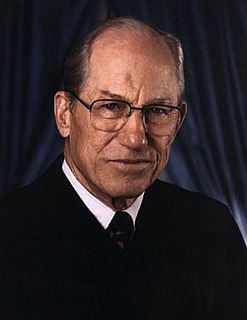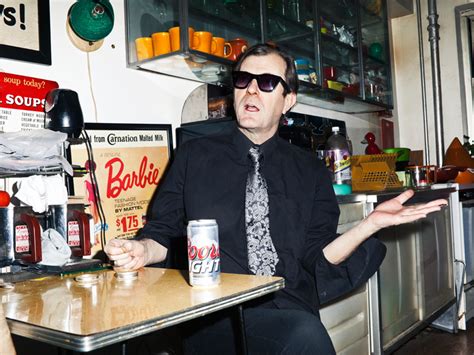A Quote by Byron White
The law is constantly based on notions of morality, and if all laws representing essentially moral choices are to be invalidated under the due process clause, the courts will be very busy indeed.
Related Quotes
Blind obedience is itself an abuse of human morality. It is a misuse of the human soul in the name of religious commitment. It is a sin against individual conscience. It makes moral children of the adults from whom moral agency is required. It makes a vow, which is meant to require religious figures to listen always to the law of God, beholden first to the laws of very human organizations in the person of very human authorities. It is a law that isn't even working in the military and can never substitute for personal morality.
[T]he guilty as well as the innocent are entitled to due process of law. They are entitled to a fair trial. They are entitled to counsel. They are entitled to fair treatment from the police. The law enforcement officer has the same duty as the citizen-indeed, he has a higher duty-to abide by the letter and spirit of our Constitution and laws. You yourselves must be careful to obey the letter of the law. You yourselves must be intellectually honest in the enforcement of the law.
Today courts wrongly interpret separation of church and state to mean that religion has no place in the public arena, or that morality derived from religion should not be permitted to shape our laws. Somehow freedom for religious expression has become freedom from religious expression. Secularists want to empty the public square of religion and religious-based morality so they can monopolize the shared space of society with their own views. In the process they have made religious believers into second-class citizens.
Lawyers, before any other group, must continue to point out how the system is really working-how it actually affects real people. They must constantly demonstrate to courts and legislatures alike the tragic results of legal nonintervention. They must highlight how legal doctrines no longer bear any relation to reality, whether in landlord and tenant law, holder in due course law, or any other law. In sum, lawyers must bring real morality into the legal consciousness
TPP replicates similar language from past trade agreements that has allowed foreign corporations the right to challenge U.S. federal, state, and local laws outside of American courts. These tribunals will not meet our high standard of transparency and due process, and they will rely on weak impartiality rules for selecting judges.
If laws were real they wouldn’t need to be enforced, because if they were real they couldn’t be broken. Try breaking the law of gravity. Now that’s a law. Laws made by man are rules reflecting the current status of his moral codes. As he alters and whittles away his morality, casting bits and pieces aside, his codes change to reflect it.
No society can exist if respect for the law does not to some extent prevail; but the surest way to have the laws respected is to make them respectable. When law and morality are in contradiction, the citizen finds himself in the cruel dilemma of either losing his moral sense or of losing respect for the law, two evils of which one is as great as the other, and between which it is difficult to choose.
We're always projecting our moral categories on things. I think that's inevitable. But capitalism places no particular value on morality. Morality in the market is enforced by contract and regulation and law, because morality is understood to be in conflict with the motive force of greed and accumulation.
A chess master can keep track of more choices than the number of stars in the galaxy within an instant, but these are people that have truly learned and mastered the choices that they have and how to deal with those choices over a very, very long period of training, so essentially what they're really doing is ruling out all the irrelevant choices and only zeroing in on the most relevant, useful choices at the moment.

































